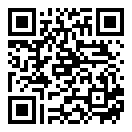Abstract:
In value-based knowledsge, "freedom" refers to the arbitrary action of man in leaving himself or others free. In order to determine the value of freedom, we need some principles and rules that have faced some critisims today, because firstly, these principles are based on a special perception of happiness, and secondly, they lead to the maximum denial of negative freedom. On the other hand, failure to provide ethical principles has also been criticized, because failure to comply with ethical principles leads to neglecting positive freedom. Using an analytical and argumentative method, this research explains the viewpoint of Islam in providing some principles for determining the realm of freedom, and, while committing to rationalism and realism, defends freedom in its negative and positive sense, in such a way that the negative outcomes of uncombinating these two are avoided. Consequently, indifference is rejected, and maximum intervention and prevention is avoided. Given monotheism, creation of man and the world , and considering realism and finalism in the valuation of behavior, Islam sets forth the following principles in determining the realm of freedom: the principle of servanthood, the principle of freedom, the value of meeting needs, commitment to positive freedom and the acceptance of social pluralism . In the area of modification of behavior, some principles and rules such as the necessity of fair thought, regarding people as truthful, the principle of Taghaful( preterition), and the principles of gradual elevation and tolerance are recommended.





